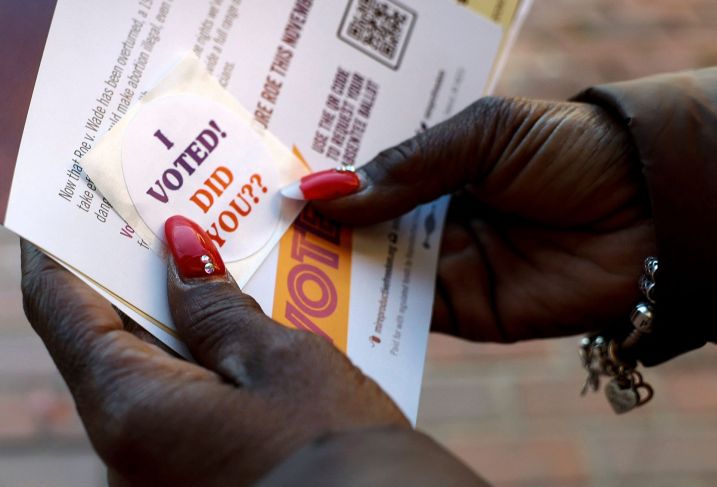Sir Winston Churchill once said that democracy is the worst political system except for all the others.
It is also the most expensive and, at times, not very representative.
According to Open Secrets, a U.S. think tank that specializes in election spending, the 2022 mid-term state and federal election will wind up costing political parties and candidates some $16 billion, up from $7.8 billion in 2018.
Five of the ten most expensive races are Senate races in Pennsylvania, Georgia, Arizona, Nevada, and Wisconsin – states that are essential for a party to control the Senate.
Among the various lobbying groups funding electoral races are broadcasters who have spent $327 million aimed at legalizing on-line sports betting and $154 million from opponents and Indigenous tribes who own casinos and are opposed to this activity that would cut into their operations.
Much of the rest of the funding comes from major organizations – medical, pharmaceutical, auto, energy, guns, and communications companies all vying to buy the support of politicians at all levels of government.
According to Maplight, a non-profit, non-partisan research organization that tracks money in politics, House candidates who won in 2012 raked in an average of $1,689,580 in campaign contributions. That’s about $2,315 each day.
Those numbers climb substantially if you’re running for Senate. Candidates who won a seat in Congress’ upper chamber each raised an average of $10,476,451. That's $14,351 per day.
According to the Center for Responsive Politics (CRP), a nonpartisan group that tracks money in politics the presidential race in 2020 cost nearly $5.2 billion. On television ads alone, President Biden spent $94 million while ex-President Trump spent some $41 million (seeing as his consistently outrageous behavior got him a lot of free press).
Small-dollar donors (less than $200) accounted for 22 per cent of all campaign funding in 2020, while candidate’s self-funding accounted for 18 per cent.
I apologize for bombarding readers with so many figures and statistics, but it is essential that we understand the vast amounts of money that it costs to run for office in the United States.
As we can surmise, potential candidates must go through financial primaries before they engage in political ones. If a candidate cannot raise sufficient funding, they cannot run. If they get elected for a two-year term in the House of Representatives, they must spend a good part of those two years raising funds for the next election rather than legislating.
They must also have friends with deep pockets.
Sam Bankman-Fried (the recently disgraced CEO of the now bankrupt FTX crypto exchange) and Larry Ellison (Oracle, a hi-tech company) donated $38 million and $31 million respectively to various campaigns. Ten other wealthy individuals reportedly donated another half a billion dollars to different candidates.
One may well ask if elected officials work for the voter who votes with their heart or for those who vote with their checkbooks.
One sees how the National Rifle Association (NRA) funds many legislators in order to keep lax gun laws on the books despite public outcries at the number of mass shootings every month across the country. The pharmaceutical industry makes massive contributions to the campaigns of legislators so that they can keep drug prices artificially high compared to prices in other countries.
And the list goes on.
One sees how a good number of Republicans backed former President Trump’s campaign to declare the 2020 elections invalid without a shred of evidence and how they have resisted any attempts by Congress and the judiciary to investigate and litigate against those who led and participated in the insurrection on January 6, 2021.
The U.S. electorate is deeply divided along partisan lines and any hope of creating a national consensus appears remote. Big donors appear to have their way in obtaining the legislation required to sustain their interests and self-perceived entitlements regardless of the cost to American democracy.
What can be done?
Can we expect those same political leaders who depend on massive donations from special interest groups to legislate against these very groups and cut off their supply of cash?
Not very likely in my view.
The United States portrays itself as the greatest democracy in the world, and purports to be the example for other countries to follow.
Yet, at the end of the day, U.S. democracy appears to ensure that Americans get the best government money can buy -- government of the few for the few.
Food for thought.
Edición: Ana Ordaz
Agradezco cada día que tengo la oportunidad de venir aquí, señaló el jardinero
Ap
El veterano se lesionó hace un año; videos lo muestran lanzando sin problemas
La Jornada Maya
Álvaro Arbeloa asegura que la diferencia se puede remontar
Ap
El californiano impresionó en la Liga de Puerto Rico
Antonio Bargas Cicero
